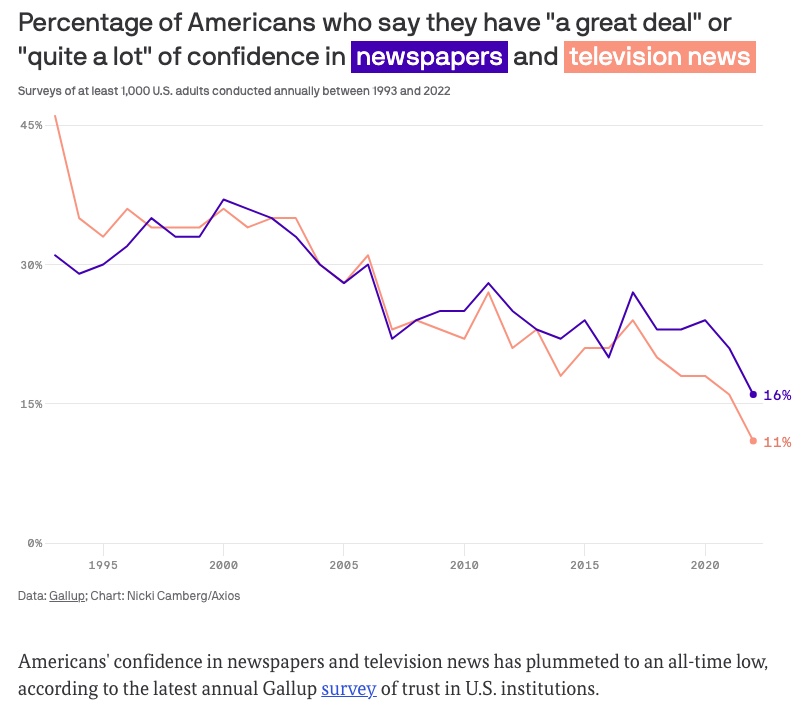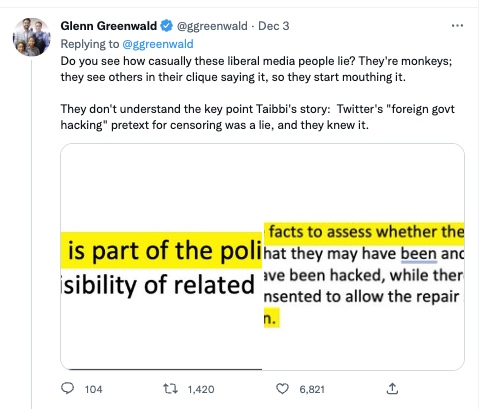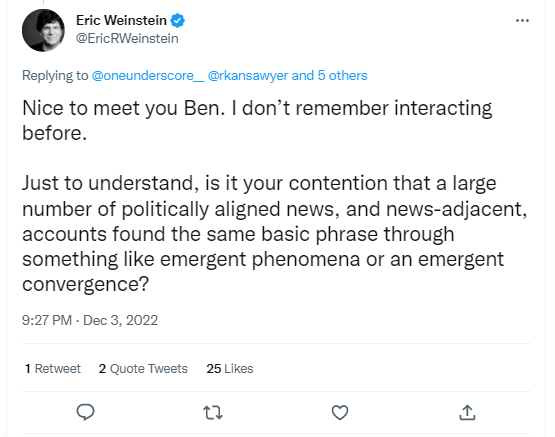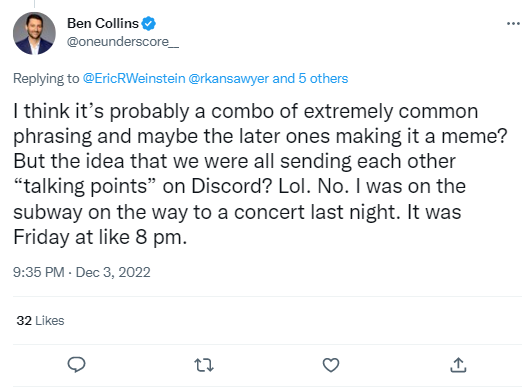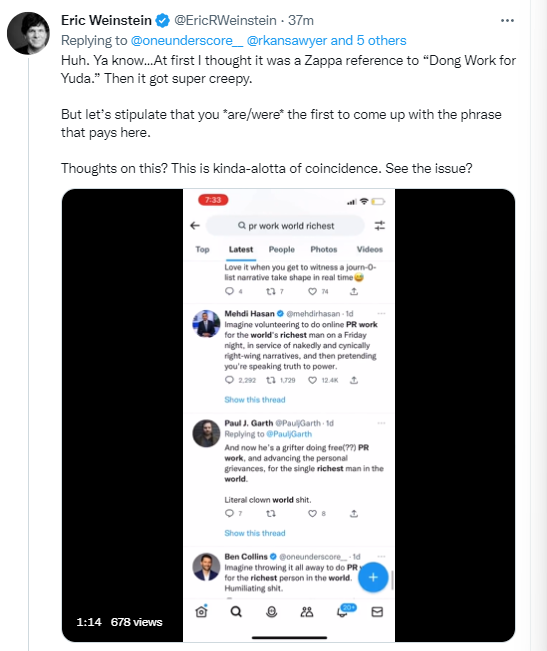Russian Interference with the 2016 U.S. Election . . .
Matt Bivens describes the extent to which Russian Facebook postings swung the 2016 election:
Chest-thumping about how the FBI needs to drive the dastardly foreigners out of our Facebook and Twitter feeds was, of course, not new. It was always eye-rolling to anyone who looked into it.
For example, we’d been told it was a major national security concern that the Russians were using our own Facebook against us — dividing us from within, with devious and manipulative ad purchases! — because they hated our freedoms. But as summarized in the Columbia Journalism Review, at issue was a mere $100,000 in “Russian” Facebook ads over the entire election season, at a time when Facebook’s advertising revenue per day, much of it political in that pre-election moment, was running about $96 million. So the entire alleged months-long Russian propaganda campaign would have amounted to less than 0.1 percent of a single day’s Facebook ads.
(It gets even more ludicrous. The ads were of no actual coherence — they were obviously nothing more than random, revenue-generating clickbait. As cited by solemn U.S. Congress reports, “the Russians” had spent their $100,000 on a bunch of nonsense — ranging from ads for fake hotlines to get help with masturbation addiction, to banners with the words “Born Liberal!” over a peaceful skycape of birds. So this was almost certainly not a devious Kremlin-directed plot, and instead simply the sleazy-lazy business of spam and clickbait.)
For me, the symbolic pinnacle of this insanity was a cartoon supposedly weaponized against us by our Russian adversaries. It was of a muscular, rainbow-colored Bernie Sanders:
Rainbow Buff Bernie ran for a single day in 2016. It was clicked on 54 times. Yet the U.S. House Intelligence Committee addressed this social media posting as part of a formal report into Russian meddling in our affairs. It was a matter of the highest concern. The House report informed us “the Russians” paid the exchange rate equivalent of $1.60 for this. Buzzfeed at the time solemnly reported these “facts” — $1.60, spent to buy 54 clicks — yet instead of mocking Congress and the FBI for this lunacy, they dutifully tracked down the American citizen who originally drew the cartoon for a pro-Bernie Sanders coloring book, so that she could explain herself! (She told them, “I feel pretty violated and very confused!”)
Clearly by 2020 we needed the FBI and the national media working hand-in-hand to police our social media — because Russia! Iran!
[More . . . ]
Trust in News Sources “at an All Time Low.”
Here is what Americans think of two of their main news sources, newspapers and television news:
This Country's Founders had a love/hate relationship with the newspapers, but I wonder whether so many Americans ever distrusted news providers as much as they do today. Here are a few excerpts from an article discussing the views of the Founders regarding the free press:
Founders spoke glowingly about the press as a pillar of democracy and guarantor of liberty. Thomas Jefferson, for instance, famously wrote in 1787 that "were it left to me to decide whether we should have a government without newspapers or newspapers without a government, I should not hesitate a moment to prefer the latter."One more quote about the free press, this one by James Madison:George Washington framed the issue of free expression in almost apocalyptic terms: "If freedom of speech is taken away, then dumb and silent we may be led, like sheep to the slaughter."
Yet discussing the free press of their day, the Founders also could often sound like those who are decrying "fake news" in 2020.
Under a barrage of criticism from newspapers published by his political opponents, Washington painted journalists as "infamous scribblers." Benjamin Franklin, himself a very successful newspaper publisher, described the press of his time as a resentful, vicious institution comparable to the Spanish Inquisition.
Jefferson frequently condemned the press as passionately as he had advanced their right to publish freely. "I deplore ... the putrid state into which our newspapers have passed and the malignity, the vulgarity, and mendacious spirit of those who write for them," he wrote in 1814. "Nothing can now be believed which is seen in a newspaper," he complained in a letter to another friend.
To the press alone, checkered as it is with abuses, the world is indebted for all the triumphs which have been gained by reason and humanity over error and oppression.
The Key Point of Taibbi’s Reporting Regarding the Twitter
Glenn Greenwald: "They don't understand the key point Taibbi's story: Twitter's "foreign govt hacking" pretext for censoring was a lie, and they knew it."
Greenwald continues: The reason these people insist Taibbi's story is trivial is they will not and cannot recognize any scandalous or improper behavior by leading Dem politicians. Ask them to name any. Any critique of leading Dems is automatically, to them, a fraud, a "nothingburger." They're Dems.... The most pitiful part of their attack is the utter lack of self-awareness. They claim Taibbi serves power.The hegemonic force in DC, Hollywood, academia, the US Security State, and corporate media is DNC liberalism: *them*. Their lives are about nothing but servitude to power....Their lives are only about serving the Dem Party. That's the only metric they know for "good journalism."
Eric Weinstein Schools Ben Collins on Cookie Cutter Talking Points Employed by Elitists Pretending to be Journalists
Eric Weinstein Points out a big problem for Ben Collins and others pretending to be journalists of Legacy Media Outlets:
Ben Collins protests too much:
Weinstein then inserts the dagger (click this image to let it scroll for the full effect):
Collins is such a joke, not a journalist.
- Go to the previous page
- 1
- …
- 172
- 173
- 174
- 175
- 176
- 177
- 178
- …
- 1,705
- Go to the next page


